Life On The Road – Without Any Brakes
“It is lovely, descriptive, energetic, and makes me want to hit the road too. You’re lucky to have had these experiences, however hair-raising!” Writer’s Workshop of Asheville
Gloria Steinem wrote, “More reliably than anything else on earth, the road will force you to live in the present.”
Oddly enough, Ms. Steinem’s words inspired me to revisit the past. This is a tale about life on the road – a passion I discovered long before wine but found no less intoxicating.
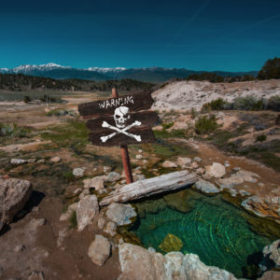 It’s not like I thought I was going to die.
It’s not like I thought I was going to die.
My canteen had run dry the previous day, the last of my granola two days before that. I desperately missed the water, the granola not so much. Sure, I was in a desert without food and water, dehydrated, exhausted, a Barry Manilow tune stuck in my head, but I didn’t think it would kill me. By the thirtieth chorus I only hoped it would.
That afternoon I had awoken disoriented, surrounded by thick, disconcerting blackness. I climbed to my knees and shook my head. When I attempted to stand it hit me. The ceiling was only four feet high.
Memory and blood raced to my head; the former to my consciousness, the latter to my concussion. A day earlier I had discovered this narrow mine shaft carved into a canyon wall, warily ventured into the darkness and fallen into a comatose sleep for 36 hours.
When my eyes adjusted to the opaque air I was relieved to find I wasn’t sleeping in a bear den or a lair of rattlesnakes. I followed the light at the end of the tunnel and I was even more relieved when it led back to the trail and not to an intake interview with the almighty.
A suggestion of water, nothing more than a tease really, formed in the deepest crevices of the dried creek I’d been following for days. The creek bed deepened into a ditch, then a ravine, and eventually into the steep sided canyon where I had taken refuge. With each step the water was easier to spot. A drop became a trickle and soon small pools gained purchase on the parched earth. I was hoping to find a puddle deep enough to fill my canteen but I figured a bath was out of the question.
Around a bend in the trail an incongruous dollop of turquoise was visible through dusty shadows of ochre and burnt umber. A pool had formed; a foot wide and several inches deep. I lay on my stomach and suspended my face in the water, letting my parched skin draw in the moisture. I drank deeply, allowed the pool to refill, and drank it dry again. I could feel it coursing through my veins like a river delta after a dam break. It soothed the angry void in my stomach and confusion soon gave ground to clarity.
A Boy Scout troop, one I had seen on the trail a few days earlier, rounded the bend and stopped short. They stared, gape-mouthed and silent.
Finally one said, “Hey mister. Is that water good?”
“It’s the best water I’ve ever tasted.”
“What about the sign?”
“Sign?”
My gaze followed the boy’s extended finger to an ancient wooden sign stuck next to the pool. I didn’t bother reading the words. The skull and crossbones told me all I needed to know.
*****
The road is where theory collides with reality. In the months between high school and college I took my theoretical, textbook knowledge on the road – the gritty back road – and my real schooling began in earnest. Education on the road is short bursts of electric shock stimulation followed by periods of reflective solitary confinement. It’s a force fed diet of self-discovery and evolution. Adapt or perish is lesson one when becoming a roads scholar.
I never felt more stimulated, more inspired, or more in tune with my instincts than when I was thousands of miles from home and penniless. That was my story when I found myself wandering through an Arizona dessert without food and water and I’m sticking to it.
Hitchhiking across the country pulled me from my comfort zone and forced me to take stock of myself. It was the satisfying autonomy, the challenging unpredictability, and the roller coaster thrill ride of being fully immersed in the moment that drew me to the road. It wasn’t about the adventure, although the road can be adventurous, nor escape, though it does offer refuge, nor danger, because the road can certainly be dangerous. No, the reason I fell in love with the road was because I have always been addicted to risk.
I was born with an innate knack for excess – a talent that lives on today – and I grew up the neighborhood risk taker, the envelope pusher, the thrill seeker who would go to any length, even jeopardize life and limb, to escape the cruel confines of a happy childhood.
When I was nine my friends and I built a minibike out of plumbing pipes, some spare bicycle parts, and a lawnmower. Unlike the go-cart we built the previous summer, we removed the lawnmower blade so we wouldn’t have to waste another afternoon in the emergency room.
When the time came for its maiden voyage, it fell on me to climb onto the minibike and pull the ripcord. Consequently I was the first one to realize we forgot to install brakes. The revelation came moments before crashing into the brick wall of Hillcrest elementary school, flying over the handlebars, through a glass window, and half way into Mrs. Crabtree’s kindergarten classroom. Luckily, I stopped my trajectory by catching the metal window frame with my face.
*****
I started thumbing around town in seventh grade but my serious flirtation with life on the road began when I turned sixteen and hitchhiked from Chicago to Daytona Beach during spring break. I repeated the trip a year later when, as a junior in a new high school, I hitchhiked from New Jersey to Florida, then north to Chicago and back east two weeks later. After dozens of hitchhiking excursions I’d become familiar with every exit ramp in Indiana and Ohio and I don’t recommend sleeping on any of them – unless of course you pay for a motel. Well, maybe not even then.
I skipped my high school graduation ceremony due to an unexpected opportunity to catch a ride from Chicago to Colorado with a couple of sketchy guys in a van. After working our way through a bottle of Mezcal I loaded my backpack with the kind of things that made perfect since after eating the worm but I came to regret when I sobered up somewhere in Missouri.
I cursed these packing decisions while I was schlepping ten pounds of Frank Zappa albums through the Yuma Desert, but I rejoiced when I sold those same records to a marine in Oceanside California so that I could break a fast that was entering its fourth week. Peaches in Regalia never tasted so sweet.
In addition to Zappa, I packed fourteen dollars and three joints (it was the seventies after all). The money ran out in Durango Colorado. The joints didn’t make it to St. Louis.
I spent my last two bucks on my first can of Coors and a bag of granola. I correctly reasoned that this new-fangled, munchy-crunchy hippie food would sustain me for a couple of weeks. Today I question the wisdom of that purchase; in hindsight I could have bought two beers. One morning I woke to the sound of a brown bear enjoying the last of my granola. I shut my tent flap and prayed he wasn’t considering a meatier entree.
As my destination was neither physical nor temporal I didn’t take this road or that road. I let the road take me. When pressed about my travels I simply said my destination was “west;” my deadline “September.” I slept where the road led me and I was occasionally surprised to wake up in a bed.
I slept on a Rocky Mountain cliff so steep I had to tie one end of my shoestrings to a tree and the other end around a knot in my sleeping bag to keep from tumbling to my death. This high terrain bed was the consequence of scrambling up the canyon wall to evade a shotgun-toting flagman in the caboose of a passing freight train. Local folklore held that the shotgun was filled with rock salt, the flagman with whiskey. A blast from his gun wouldn’t kill you but it just might ruin your day.
I slept in a valley so high above the timberline that it felt like God’s teacup. Beneath the western rim of the cup stood the remnants of an ancient ghost town, the rickety buildings leaning in every direction like an old goldminer’s teeth. With one foot on each side of the Continental Divide I drank million-year-old water from a melting glacier and struggled desperately to catch my breath in the insufficient air. Being from New Jersey by way of Chicago, I naturally assumed my body was having a bad reaction to the pure air.
I slept in the Painted Desert, distancing myself from the scrub brush where the rattlesnakes and tarantulas sought refuge from the heat. As I readied my camp, bats the size of Persian cats made calculated dives around my head. Within minutes their sheer numbers blocked the setting sun and turned day into night.
While in the Painted Desert I unwittingly ventured into a “border dispute” between the Navaho and Hopi Indian nations. Pickup trucks crammed with angry Navajo drove by, their rifle fire echoing through the valley after they passed. The air was so hot I thought the clouds might spontaneously combust and incinerate me on the spot. When I reached the point where I would have sold my soul to the devil for 12 square inches of shade, divine intervention placed a pearly white cowboy hat on the road before me (can I get a witness!). Given the pitiless desert heat that cowboy hat probably saved me from heatstroke despite the two bullet holes that allowed specks of sunshine to pass through.
A trucker hauling ore out of the mountains invited me into the luxurious, air-conditioned cab of his truck. Between robust bursts of laughter he slapped his steering wheel and said, “I never expected to find a longhair way out here in the middle of a war zone, not a live one anyway!”
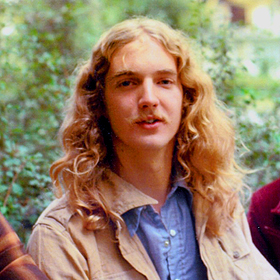
The day I returned from 10 weeks on the road.
Hitchhiking is perversely intimate and anonymous at the same time. Drivers often open up to hitchhikers, offering strange, fleeting glimpses into powerfully personal places, or they may sit quietly for hours, as if the mere presence of another life form fills some unspoken need. If the conversation didn’t appear to be headed in an interesting direction I might pretend to be someone else entirely. I once spent a day conversing in a terribly phony French accent when I hitched a ride through the desert with a soldier headed to his new base in California. He was impressed by my life in France (a country I had yet to visit) and my surprising command of … how you say, Anglais (the only language I ever spoke). I told him ribald tales of lascivious French women. He told me his Ford Pinto was less likely to overheat if he kept the heater on maximum. I hit my forehead with the palm of my hand and cried Sacré bleu!
What are the odds that two strangers, drawn together at the same moment in time and space, would mutually choose to leap into an unknown future together? Is there a gene that compels some of us to seek companionship? Stimulation? Knowledge? Or is it something darker, more primal, more carnal? Who rules the road, the ego or the id?
The answer is both, but some stories are best left unwritten.
Hitchhiking plugs you into the electrifying (some might say terrifying) current of humanity. It puts you face to face with people on the fringe and then dares you to be indifferent. The road introduces you to the adventurous and courageous, the blindly optimistic, the warmhearted and the giving. The road forces you to come to terms with what kind of person you are, or if you’re lucky enough to be introduced to the road at an early age, what kind of person you want to be.
I didn’t know it when I was nine, but driving the minibike I’d created from junkyard parts, held together with boyish optimism and duct tape, would become a metaphor for my love of the road. Whether clinging to handlebars or the side of a cliff, I’ve learned you never feel more alive than in that moment when you think you might die.
So it was that I found myself drinking turquoise water under a crudely painted skull and crossbones. I think you know how the story ends. I drank from the pool and lived to tell the tale forty years later. I can’t vouch for the boy scouts. I only know that in my life, a life forever changed by the road, water has never tasted so sweet.
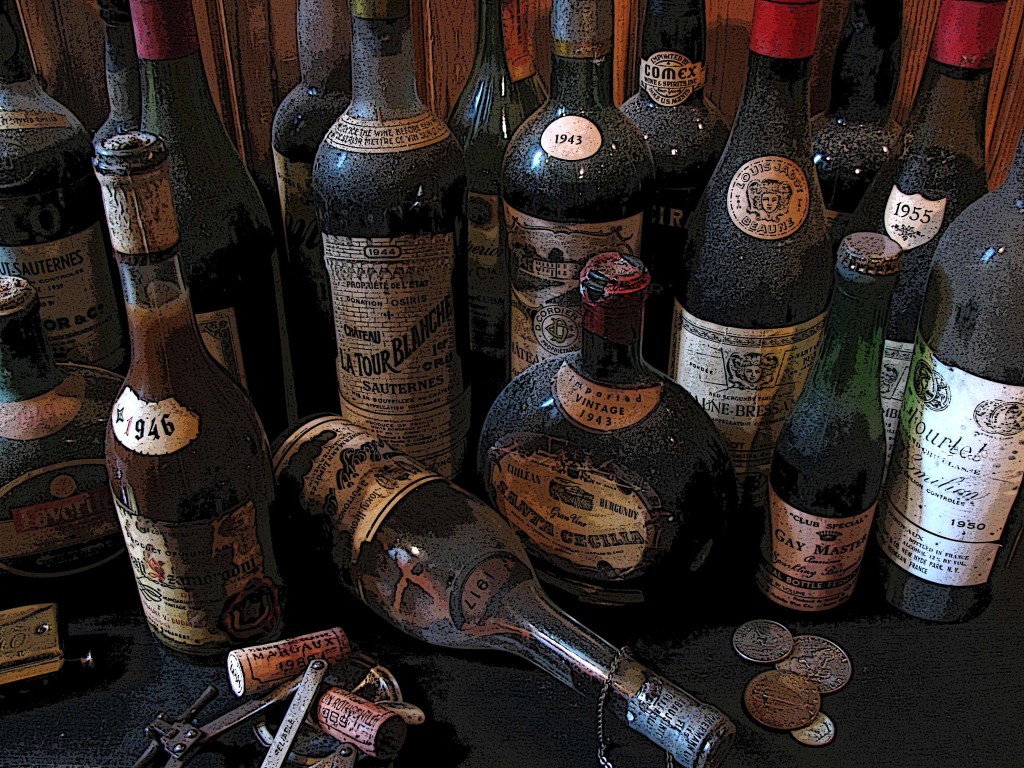

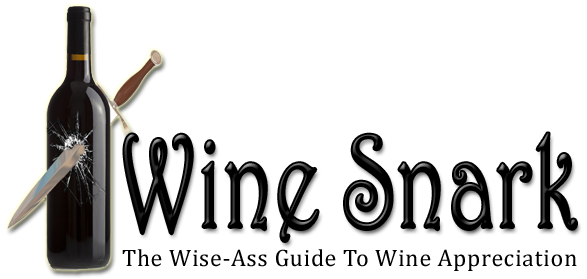
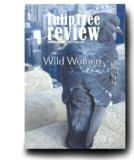
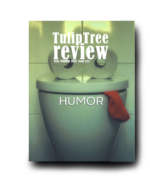
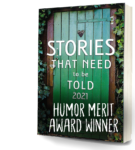
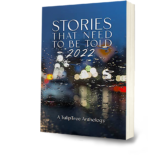
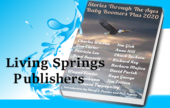
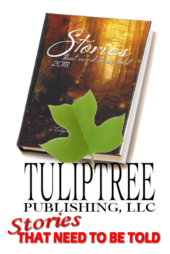












Ever the bullshitter; I guess you chose the correct career; the theatre doesn’t pay.
Hmm, the theatre. Can’t pay worse than writing! I’ll look into that.
Bullshit or not always a good read.
Thanks Mark. Claudia knows it’s real – she was there the day I returned and that picture was taken. There’s plenty of info available online about the Hopi-Navajo land disputes, and the 1974 Land Settlement Act that resulted in 10,000 relocations – although Wikipedia failed to mention that I passed through the middle of it. Go figure.